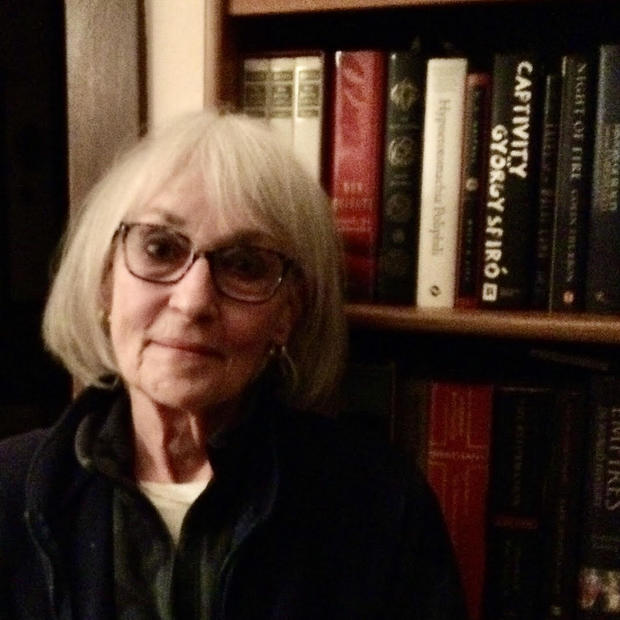On Wednesday the Metropolitan Democratic Club hosted a lunchtime panel that discussed bills now being considered by the Washington Legislature to decriminalize marijuana possession. House Bill 1177 and Senate Bill 5615 would reclassify possession of small amounts of marijuana from misdemeanor status to infractions more like driving faster than the speed limit.
It would have been clarifying to include a dissenting voice in the discussion, especially since police and prosecutors oppose the legislation, according to one member of the panel, State Sen. Adam Kline, a Democrat from Southeast Seattle. But the occasion’s apparent purpose was to explain the rationale for the bills to a group predisposed in their favor. Kline, surveying the mostly silver-haired members of the audience, observed, “We’re of that generation where we all inhaled.” Former or current pot users who might have been among the assembled Metropolitan Democrats were clearly not led, in the years following Woodstock, down the poppy path to heroin enslavement. All seemed to agree that marijuana is a recreational drug no more debilitating than alcohol or tobacco, and should be subject to civil regulation instead of criminal penalties.
Enforcing criminal sanctions is expensive. Seattle City Attorney-elect Pete Holmes, speaking after Kline, introduced himself as “a good-government wonk” whose early work in environmental law taught him that refusing to pour money into developing wetlands was not merely an extension of tree-hugging but effective public policy. Similarly, he said, refusing to pour money into existing marijuana law enforcement is an economic necessity. “We need marijuana reform to help government through the budget crisis,” Holmes said. If we continue to prosecute marijuana use, he said, we won't have the resources to address more serious public safety issues.
Panelist Alison Holcomb, ACLU Drug Policy Director, would rather shift resources to treatment services. She cited estimates from the Office of Financial Management that passing the new law would save $16 million in law enforcement costs each year, while $1 million in revenue could be collected in fines for infractions. The savings could be earmarked for treating addictions and supporting the King County Drug Diversion Court Program, currently “fighting for its life.” Holcomb was equally concerned with the way current restrictions on marijuana undermine civil rights: “Prohibition-style laws come down harder on people of color,” she said.
Criminalizing marijuana in America has no more succeeded in curtailing its use, said Kline, than Prohibition succeeded in keeping bourbon lovers from their whiskey. Even so, the belief that marijuana is a menace to society requiring severe punishment remains strong, partly because the belief has been carefully nurtured by self-interested tycoons and politicians. According to panelist Rep. Roger Goodman (D-Kirkland), William Randolph Hearst mounted his lavish campaigns against hemp production because its commercial non-recreational uses threatened his petroleum-based patents. Holcomb, referencing Michael Massing’s The Fix, recalled how President Nixon wisely allocated 70 percent of the public funds budgeted at the time for addressing the nation’s drug problems to treating heroin addicts. But Nixon actively opposed decriminalizing marijuana use — he thought it fueled anti-establishment protests.
While the bills under discussion would decriminalize an adult’s possession of less than 40 grams of marijuana, delivery would still be a felony, said Holcomb. This prompted some side talk and chuckling about how adults would come to possess marijuana in the first place. Unless they grew it themselves or happened to find a baggie gone astray, wouldn’t their possession mark them as accessories to a crime? Technically, yes, admitted Holcomb, but “we need to take the first step” in the right direction, even just the small step before the 2010 Legislature.
Many politicians, especially those representing districts outside Seattle, are keeping their feet firmly planted because a first step might be viewed as making drugs more accessible to youngsters. Kline said, “This is why we left an age limitation. It’s political.” For individuals under 18, possession of marijuana in any amount would remain a misdemeanor (the response to young first offenders is treatment, not punishment or a blemished record).
That exception aside, most citizens realize the futility of the drug war, claimed Goodman. Emails from constituents demanding his support for marijuana laws presently on the books are “not grassroots but Astroturf,” he said, full of boilerplate supplied by opposition groups. “We're at a tipping point,” he assured the audience, and Kline chimed in, “The social tide is turning.” Still, their peers in Olympia may not readily be turned or tipped in the direction of revising present laws.

